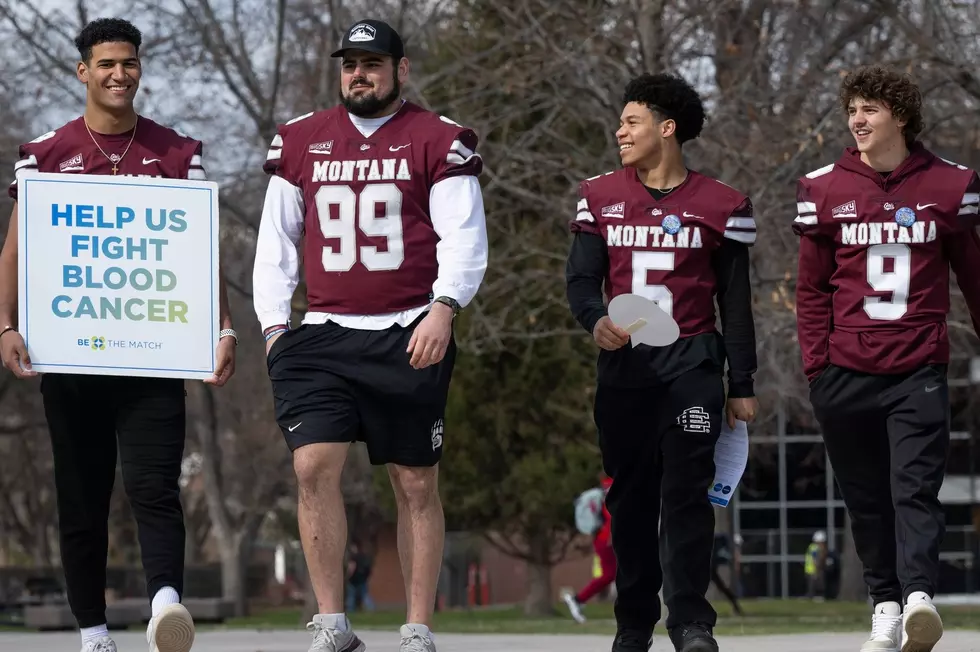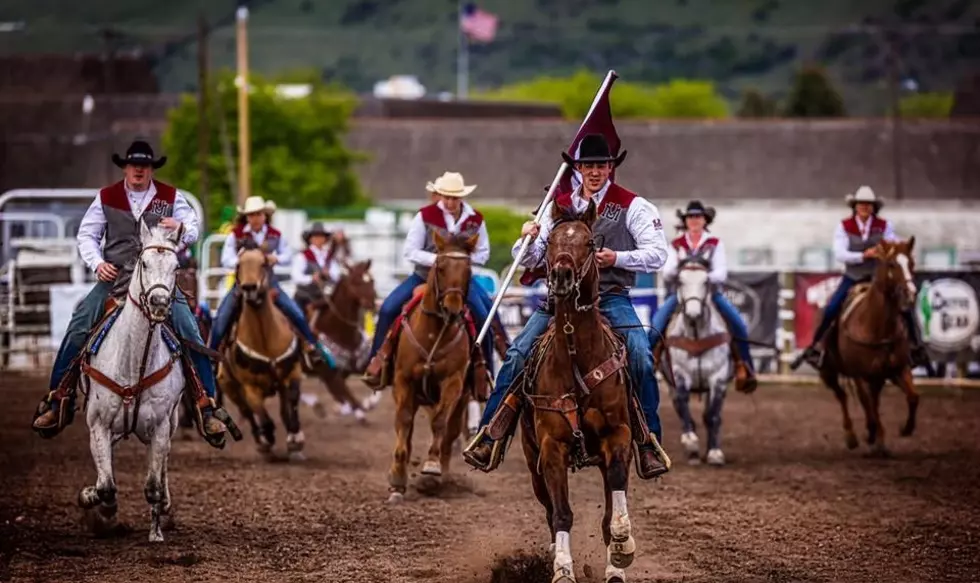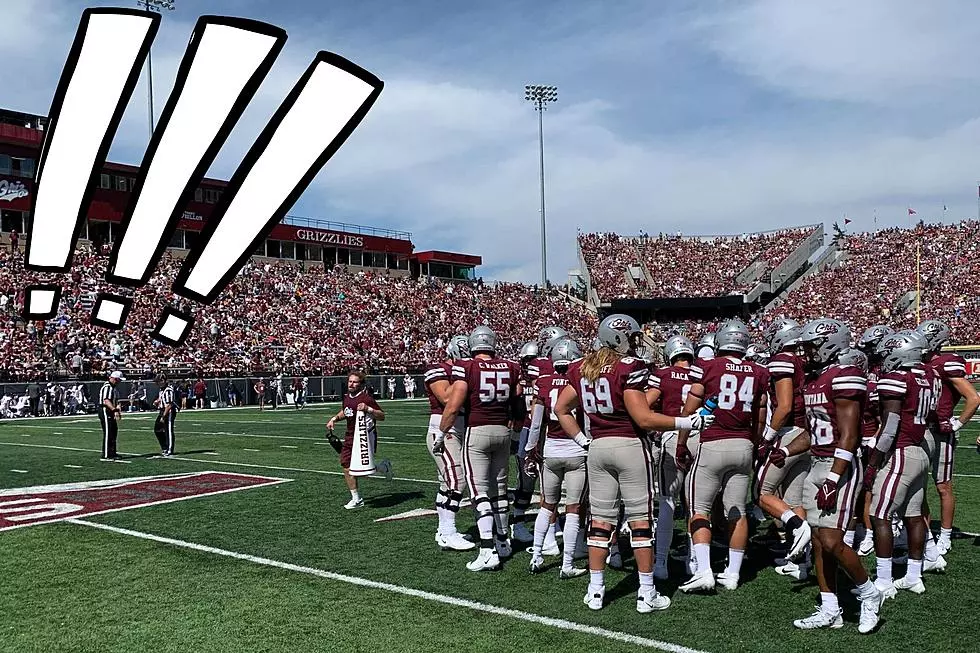
Coach Robin Selvig Recalls Influences of Pat Summit
I am a huge fan of women's college basketball and also a son who had to watch his mom drift away with Alzheimer's.
So last week's news that former University of Tennessee coach Pat Summit succumbed to the disease's evil was very sad.
I have worked courtside at University of Montana Lady Griz basketball games for 18 seasons, am pretty good buddies with coach Robin Selvig and was also part of the insane 8,000+ crowd back in the '90s when Montana hosted Tennessee. With the help of UM Sports Information Director Joel Carlson, I was able to see a lot of fond memories painted onto one canvas:
She was born on June 14, 1952, in Clarksville, in north-central Tennessee, hard against the Kentucky border. He was born 68 days later in Plentywood -- but only because Outlook didn’t have a hospital -- in northeast Montana, a few minutes’ drive from either Canada or North Dakota.
That distance was one of the few things that separated Montana women’s basketball coach Robin Selvig and former Tennessee coach Pat Summitt, who died June 28 at the age of 64 from complications arising from Alzheimer’s disease.
Though their teams met just twice on the basketball court, theirs was a shared journey, of taking women’s college basketball from the earliest days of Title IX in the 1970s and shepherding the game to what it’s become today, four decades later.
They are on the short list of pioneers, coaches who can be counted with the fingers of two hands, who found their calling early, stuck with it and in turn changed lives, schools, communities and states. And most important, perceptions.
Montana had had a women’s basketball team, but it had been operating through the physical education department. Title IX was part of the Education Amendments of 1972, but even half a decade later no one knew where the sport, which wasn’t even sanctioned by the NCAA, was going.
“Those were interesting times,” says Selvig. “There was Title IX, but it was a gradual process. It didn’t mean you all of a sudden got the same amount of money for locker rooms and travel (as the men’s team). The mistake would have been thinking it was going to happen overnight.”
But it did happen, and Selvig and the Lady Griz had some built-in advantages. First, Montana was already crazy about basketball at the time. Mike Montgomery, hired shortly before Selvig and charged with bringing on the new women’s coach, wasn’t just the men’s basketball coach. He oversaw Selvig’s program through its infancy.
“There were different paths taken by different places back then,” says Selvig. “A lot of programs were the women and men, but we were incorporated into the program, and I think that helped us grow fast. It got us pulling for each other faster.”
None of which is to overlook Selvig’s influence. By year three, in 1980-81, he was already winning 20 games, and in 1983-84, an NCAA tournament victory over Oregon State, in front of 4,093 fans at Dahlberg Arena, the game he still looks back on as being the one that really got things rolling.
Today: Montana has made 27 national tournament appearances and won 24 conference championships, and Selvig enters season No. 39 in the fall with 865 wins. And while it’s not the Final Four, no four-year player has gone through the program without enjoying a conference championship.
Tennessee was a three-time national champion when Summitt and Selvig reached a deal in the early 90s. If you come play us here, we’ll travel and play you there.
“It would be rare for that to happen now,” says Selvig. “The bigger schools can buy guarantee games at home, but that was before there was much of that at all.”
Montana traveled to Knoxville in late November 1993 and pushed the Volunteers before falling 82-66 in front of 3,426 fans. “We actually played them tough. I remember they called a timeout in the final four minutes because we were hanging in it,” says Selvig.
“You heard (Tennessee’s fight song) Rocky Top about 10 more times than you’d want to hear it, but it helped us become a better team, and it gave us confidence we could compete with them.”
That set the stage for the following season, when Tennessee returned the favor and visited Missoula a few days before Christmas. The Volunteers, who had five players in double figures, led by two at the half and won 66-61. The crowd: 8,371. One of the handful of Montana college basketball games I will always remember!
“Our fans knew who Tennessee was, and they showed up for that game,” says Selvig. “It was a great crowd, a great environment.” And a testament to what Selvig and Summitt had built at their schools.
“Not that many coaches are at the same place for a long, long, long time. We both loved where we were,” says Selvig. “She was definitely a pioneer, not just of women’s basketball but of women’s athletics and opportunities.
“It’s been very gratifying for me, but for a woman to fight those battles over the years and make those gains, that must have been very rewarding. A lot of young women owe a lot to Pat Summitt.”
There won’t be another Pat Summitt, just like there won’t be another Robin Selvig. And because of the foundation they’ve established, not only at their schools but for women’s college basketball, there won’t have to be. The heaviest lifting has already been done. And there can be no better legacy than that.
Thank you, Joel. Thank you, Robin. And thank you, Coach Summitt.
DB
More From 94.9 KYSS FM









